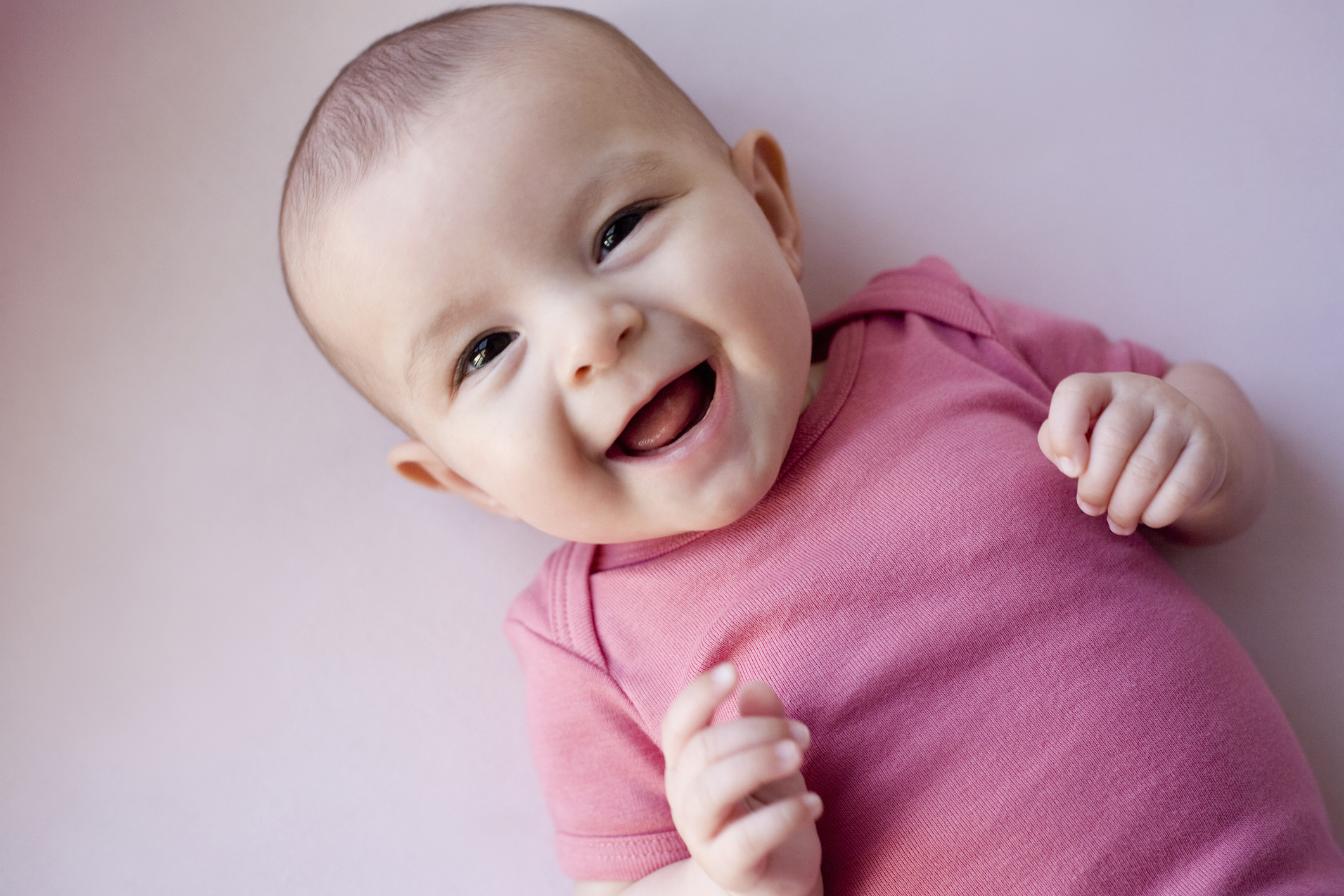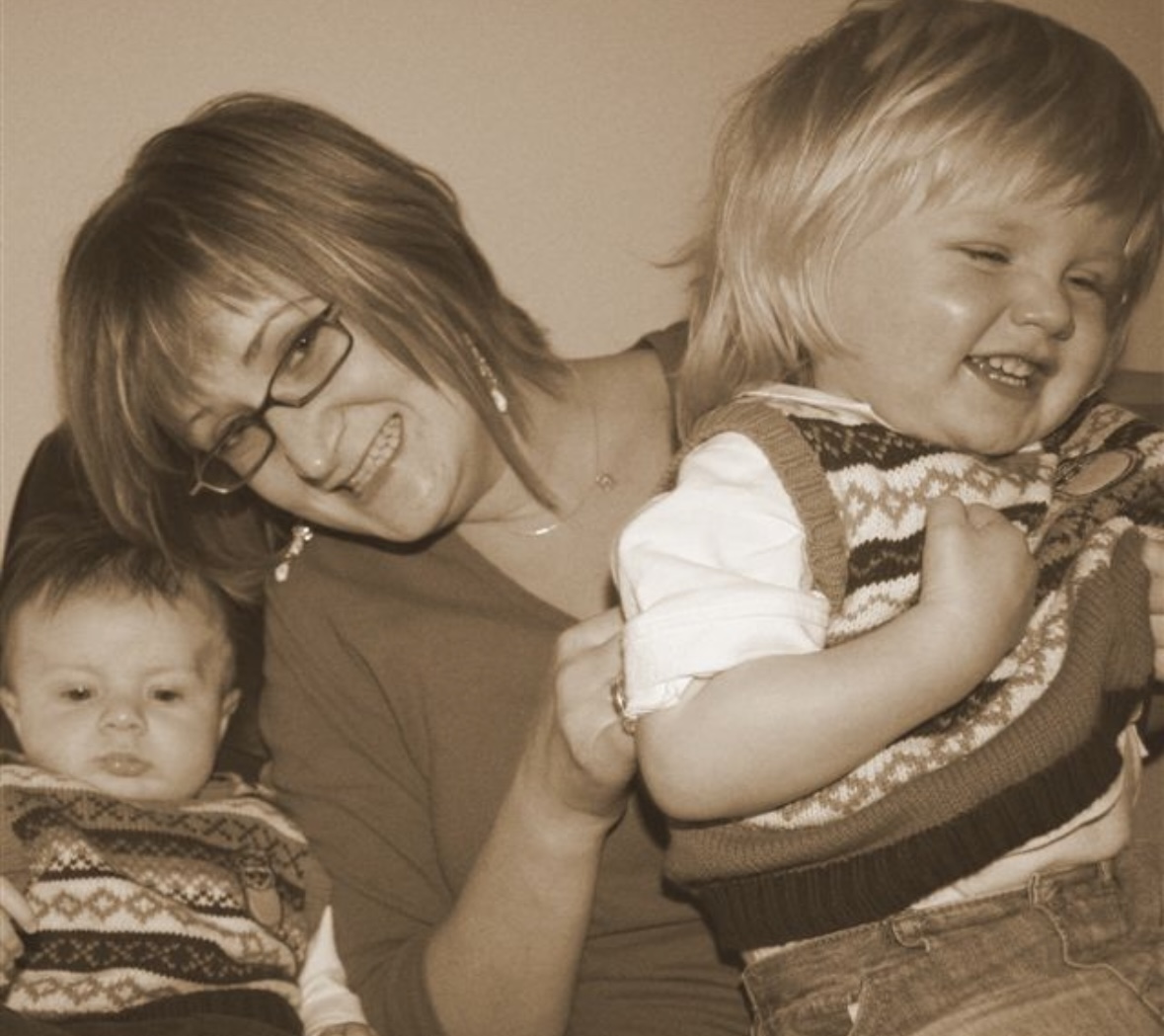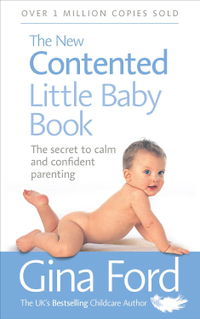Opinion: Gina Ford’s controversial parenting book, like all good 90s trends, is making a comeback - here’s why I loved it
When The Contented Little Baby Book by Gina Ford was published 25 years ago, it divided mums


As Gina Ford, author of a controversial 90s parenting book prepares to launch an app 25 years later, our writer recalls how divisive the book was among mums - and outlines why she was a fan.
Gina Ford is back, and she's making headlines all over again. I always knew this moment in my motherhood journey would one day come. As 90s nostalgia shows no sign of falling out of fashion, with everything from the best toys of the 90s to 90s-inspired baby names making a comeback, I've often wondered how long it would be before the biggest and most controversial parenting book of the 90s and Noughties would make a re-appearance. And now, it seems that moment has arrived.
It’s 25 years since The Contented Little Baby Book first hit bookshelves back in 1999, turning its author, Gina Ford, into one of the first official parenting experts - before such a thing even really existed. Based on the author's experience of caring for more than 300 babies as a maternity nurse, the book divided mums and, arguably, ended friendships but it has remained, according to Amazon, one of the bestselling parenting books in the UK for almost 20 years.
As someone who got married in 1998 and had my first baby in the early Noughties, I associate Gina Ford with my experience of motherhood as faithfully as today's modern mothers seem to hang on every word uttered online by the likes of Stacey Solomon or Molly Mae (and GoodtoKnow's panel of parenting experts, of course).

I first heard about 'the Gina Ford method' before my baby had even been born. I vividly recall a male colleague pressing a well-thumbed copy of Gina Ford's revered book on me and urging me to read it. He didn't add 'Before it's too late...' but I got that message loud and clear.
This was a book, he implied, that would prepare me for parenthood like nothing else. (Mind you, this was the same fella who told me - when I was seven months pregnant and optimistically enquired about his postpartum wife - that their delivery room floor had 'looked like someone had been executed' so maybe I should have questioned the wisdom of his parenting advice.)
At first, I'll admit, I was horrified. It was like reading the instruction manual for some sort of tiny, tyrannical automaton, not a guide to helping a little human learn how to sleep and eat. But... (whisper this) it worked.
And at first, I'll admit, I was horrified. It was like reading the instruction manual for some sort of tiny, tyrannical automaton, not a guide to helping a little human learn how to sleep and eat. But Gina Ford practically had me at hello; when I read that my baby would sleep through the night and nap daily with ease if I followed her simple instructions, I was determined to give her advice my best shot.
GoodtoKnow Newsletter
Parenting advice, hot topics, best buys and family finance tips delivered straight to your inbox.
And (whisper this) - it worked. Through the mists of matrescence, we established a reliable but realistic routine for breastfeeding and bedtime. Inspired by Gina's advice, my husband attached portable blackout blinds (£34.99, Amazon) to the window of our tiny flat in King's Cross so that our bedroom felt like a cross between an arty photographer's studio and some kind of den of iniquity. I even attached tinfoil to the bedroom windows when we stayed with our baby's bemused grandparents.
At baby groups, mums passed around copies of 'Gina' - I've no idea why the book itself seemed to take on the persona of its author but it did - just like we had shared copies of Forever by Judy Blume at school. (If you know, you know...)
Long before the days of social media, flat whites or lightweight strollers, we discussed and debated the merits of the Gina Ford approach over cappuccinos in cafes overrun with Bugaboo Frogs. And yes, we sometimes fell out over Gina, as my friend Natalie remembers.
"I used Gina Ford's book as a guide for weaning (not during the newborn days) - recommended by my sister-in-law - and I found it so helpful to establish a routine that my baby and I adapted to well, plus we were both happier and less stressed," she recalls.
"I found it so helpful that I mentioned it at a mum and baby group and the reaction was hilarious - it was like I’d mentioned the unspeakable! Everyone there was very anti-Gina Ford's book - except for one friend. She also found it very helpful as she had severe post-natal depression and the advice for creating a routine worked. It's a very prescriptive approach and perhaps the tone seems a bit bossy - maybe some people don’t like to be told what to do. Whereas I loved being told as I had no clue what I was doing and a solid routine really helped me."
Among our friends, Gina Ford took on a sort of cult status, and when that happens to a body of work, people seem to start believing it says things that it doesn't. I don't recall controlled crying being a major part of our parenting repertoire except during desperate moments which I now realise were growth spurts or wonder weeks. We didn't need to try controlled crying because, as Gina promised, establishing a routine made for a contented baby.
I had two babies under the age of two years old and they napped together for two hours every afternoon until the oldest started nursery. Nailed it, as we never said in the Noughties.
But if you want the ultimate test of how brilliant Gina Ford's guidance was, how's this; when my second child was born, I had two babies under the age of two years old and they napped - together - for two hours every afternoon until the oldest started nursery. Nailed it, as we never said in the Noughties.
In the end, I think Gina's book became a survival guide for a certain ‘type’ of mum if such a thing exists. Some of us grew up being told we could have it all, and left glitzy graduate jobs only to find ourselves home alone with a hungry, screaming, leaking human. We needed a rule book and Gina Ford was the closest thing we could find, before the days of the internet.
It didn’t really matter all that much whether or not the advice worked; we just felt better for knowing that someone seemed to know what our babies should be doing, and when. We clung to that guidebook as if our lives depended on it. Because it felt as if they did.
When I dug out my dog-eared copy recently, even the sight of the front cover made me feel strangely calm. That book was a beacon of hope in the stormy sea of self-doubt that was first-time motherhood in the Noughties. To me, Gina’s book represented the possibility that I could figure this parenting thing out.
And I did. My own contented little baby turned into a handsome young fella who is making his way in the world in ways that make me proud every single day. Oh, and he’s still an excellent sleeper. But, curiously, he prefers to sleep with the curtains wide. open. So maybe our devotion to the Gina way did leave its mark after all.
Anyway, in the end, I grew into a devotee of the Baby Whisperer books. I can’t wait until that classic 90s baby-raising bible falls back into fashion.
The New Contented Little Baby Book by Gina Ford, £14.99 at Amazon
In this revised edition of The New Contented Little Baby Book, Gina Ford uses feedback from readers and sets out her philosophy for establishing feeding and sleeping routines.
Looking for more fresh takes on the parenting issues of the day? Read Is your tween angry, entitled, and rude? by our teens and tweens expert, or discover what is ‘sturdy parenting’ - child psychologist Dr Becky explains the benefits of this technique. Or for a dose of Royal parenting gossip, check out why these royal relatives are the perfect ‘role models’ for Princess Charlotte and Prince Louis or Why Prince Louis was always destined to be the Royal Family’s ‘wild child’, according to a royal expert .

Heidi is a seasoned parenting journalist with over 15 years of experience. She has contributed to numerous UK national newspapers, including The Guardian, The Times, and The Telegraph. Her work has also appeared in a variety of print and digital magazines, such as Psychologies and Mother & Baby, where she was Shopping Editor for six years. In this role, she specialised in consumer features, including buying guides and baby gear reviews. Heidi is also a mum of three.
